Our latest Partnership Conversation Series event convened three presidents from leading colleges and universities in DC, Maryland, and Virginia to spotlight transformative initiatives at their respective institutions that connect learners to careers, leverage partnerships with employers and regional stakeholders, and create exciting opportunities for innovation in higher education.
David Metnick, Managing Director at Accenture, opened the evening by welcoming attendees to Accenture’s space in downtown Washington and outlining the firm’s approach to continuous skill development. Dr. Andrew Flagel, President and CEO of the Consortium of Universities of the Washington Metropolitan Area (the Consortium), later emphasized the value and impact of the region’s higher education institutions.
Brandon Busteed, CEO of BrandEd, moderated a dialogue with presidents Dr. Maurice Edington of the University of the District of Columbia (UDC), Dr. Mark Ginsberg of Towson University (TU), and Dr. Anne Kress of Northern Virginia Community College (NOVA) on the role of higher education in the development of robust talent pipelines.
Read below for more insights, best practices, and opportunities shared by the speakers.
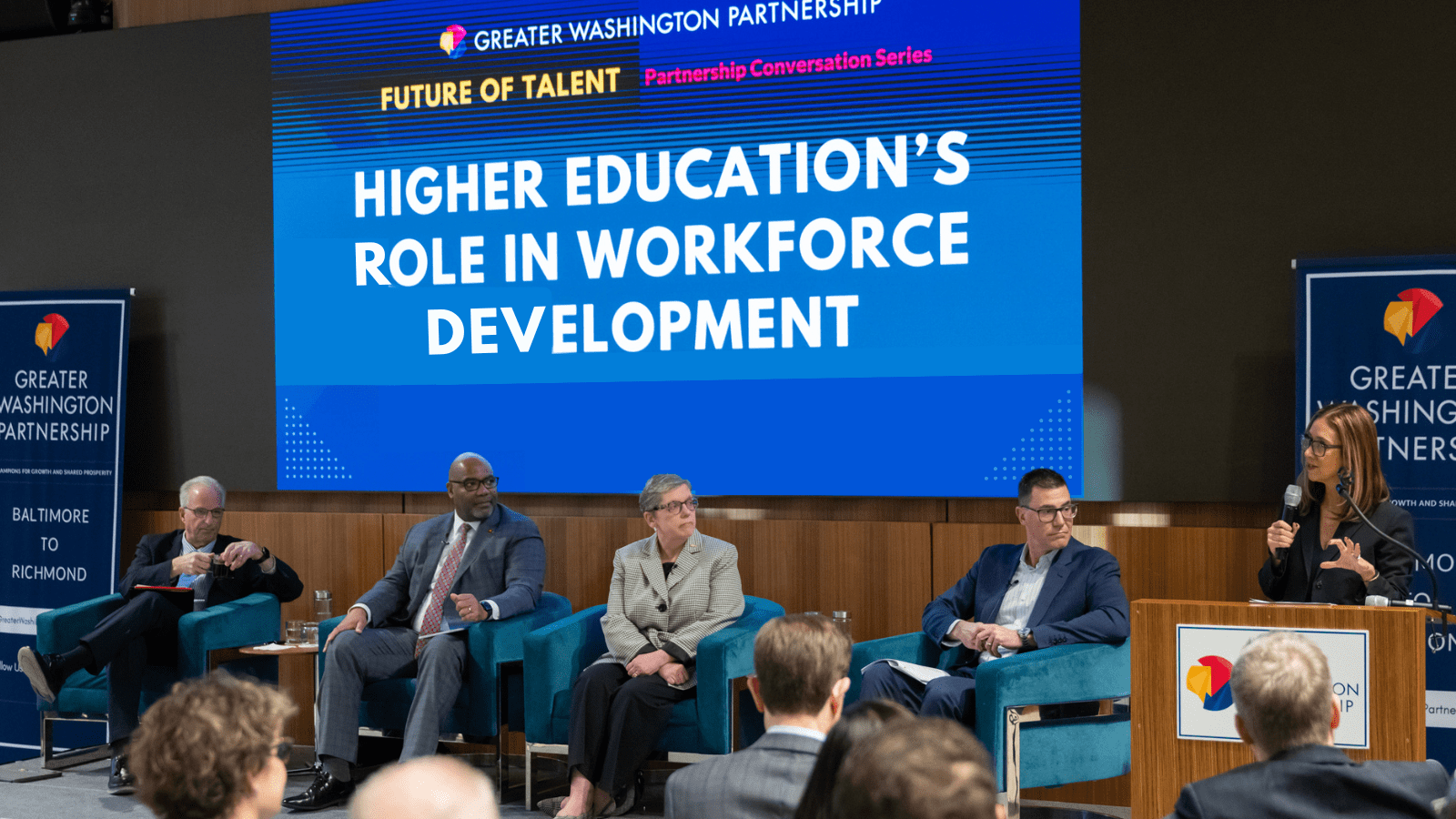
Colleges and universities are critical economic drivers
Dr. Flagel previewed a report soon to be released by the Consortium studying the impact of its 18 member institutions and four affiliate member institutions. Key data points on the economic impact of these institutions throughout the region include:
- +100,000 jobs supported
- +300,000 students engaged
- $1.6 billion in financial aid provided
- +$15 billion generated in economic activity
“Our institutions are anchors of economic, cultural, and community activity. They attract business, retain talent, foster innovation, deliver essential community services, and revitalize neighborhoods.” – Dr. Andrew Flagel, Greater Washington Partnership Leadership Council
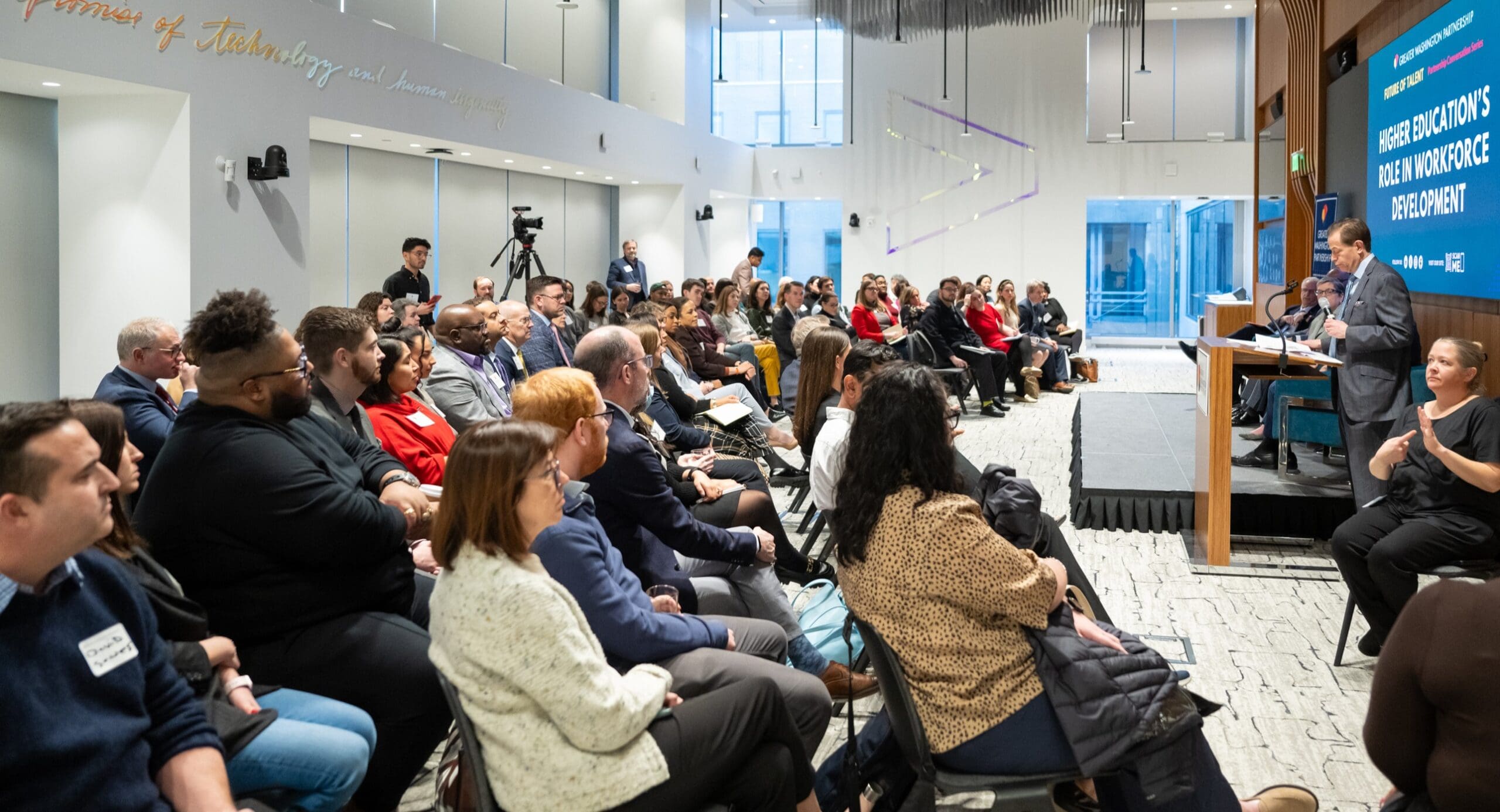 |
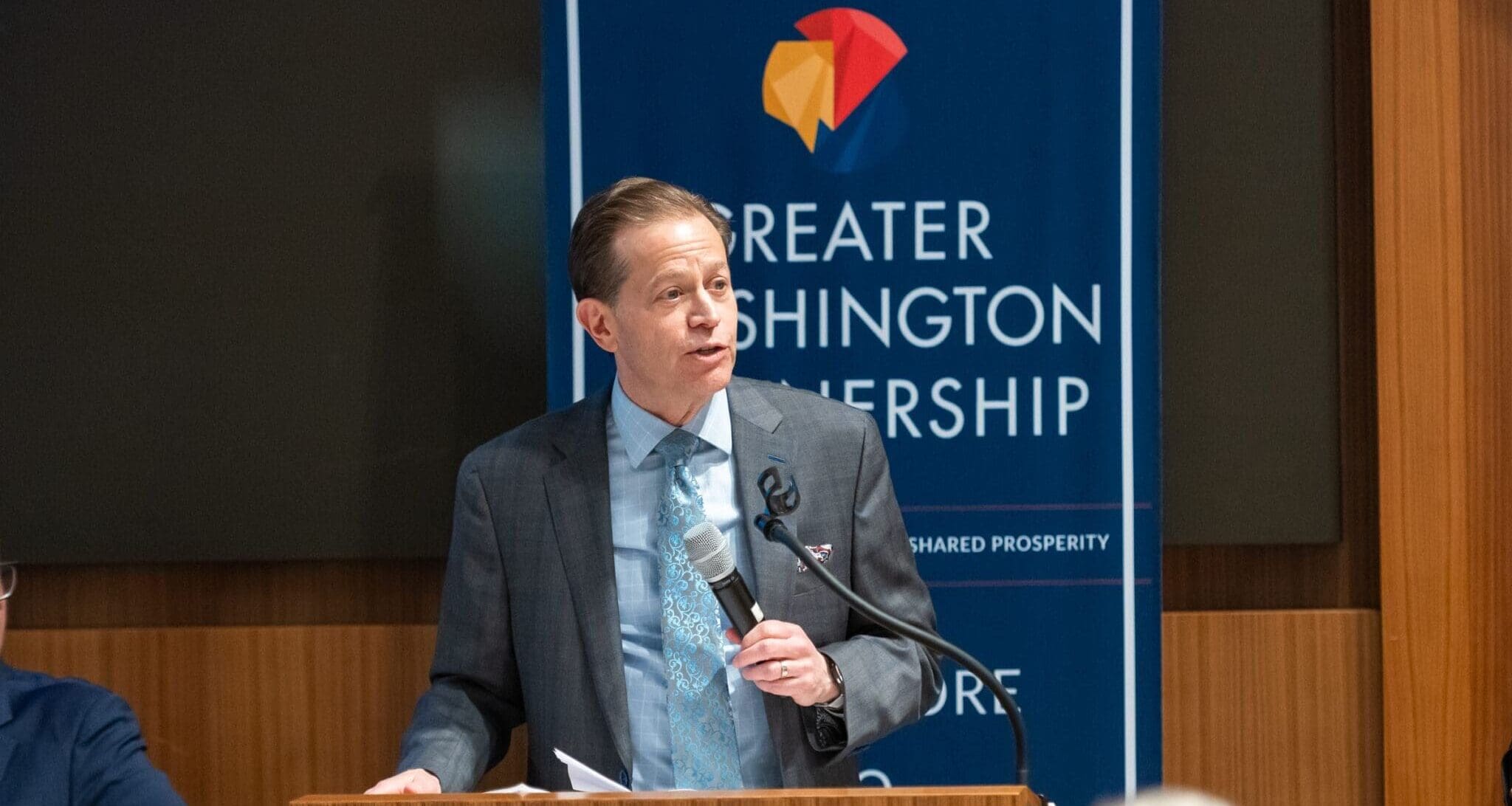 |
Strong employer-educator partnerships can enhance the student experience and expand talent pipelines
The speakers discussed a variety of opportunities for employers to both support and engage students.
Dr. Edington discussed UDC’s focus on collecting employer feedback through surveys to study students’ postgraduate outcomes. (Employment outcomes are a key metric in UDC’s new 5-year strategic plan.)
Dr. Kress shared that employers engage NOVA students through the Career Leadership Readiness Institute (CLRI), a bootcamp designed to prepare students for the workforce. CLRI offerings include pre-interviews, where employers provide students with direct feedback on their communication skills and resumes, and other networking opportunities, critical for students who may not have professional connections to certain careers.
Towson has developed a robust network of employer partnerships that support their healthcare programs. With three healthcare systems in close proximity, TU works with partners to secure funding for student training programs and to provide clinical placements for students. In return, local hospitals have access to a consistent pipeline of rising healthcare professionals with experience in simulated training labs modeled after the environments they’ll encounter in real-life workplaces.
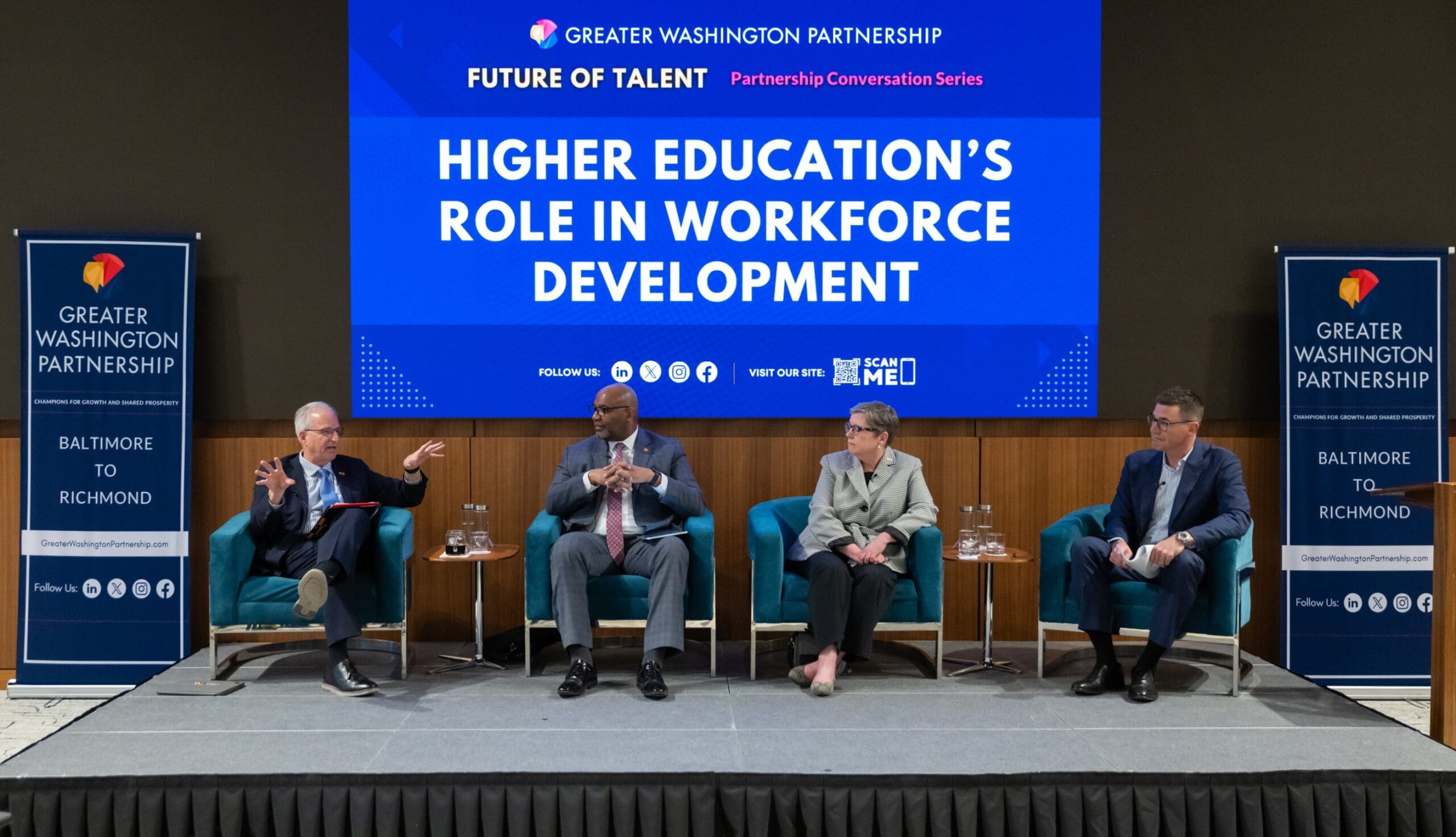
Employers can inform labor-market alignment in academic programs
In addition to providing internships and other experiential learning to students, the presidents encouraged employers to validate curriculum through participation in advisory boards and related academic processes.
While partnerships can sometimes originate from presidents and CEOs, Dr. Kress noted the importance of getting the right people in the room for sustained relationships. She stressed the critical role hiring managers can play in connecting to instructors to ensure that students gain the skills that lead to in-demand roles.
Partnership support: Every two years, the Partnership convenes subject matter experts to identify the knowledge, skills, and abilities (KSAs) needed for entry level tech roles in the region. We share these insights alongside labor market data in the Employer Signaling System (ESS). Learn more about this work here.
Institutions succeed when they reach their local communities
Each president, representing public institutions with deep investments in their locales, discussed the importance of reaching potential learners present in their service areas. Dr. Edington discussed UDC’s push to enhance its outreach to prospective students and tailor program offerings based on location after discovering that some of its free workforce programs (while popular) were not being utilized by residents in the wards UDC targets.
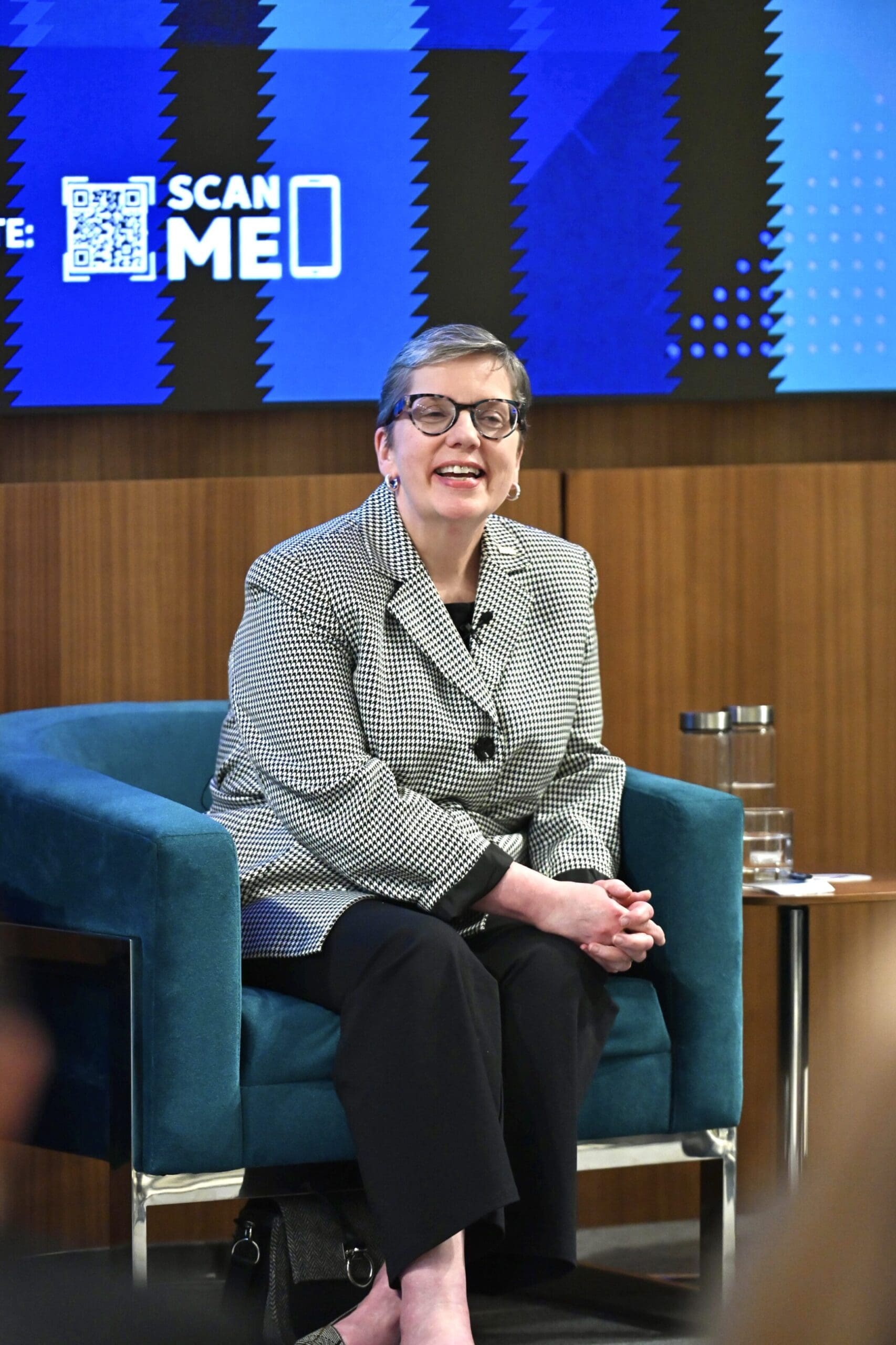 |
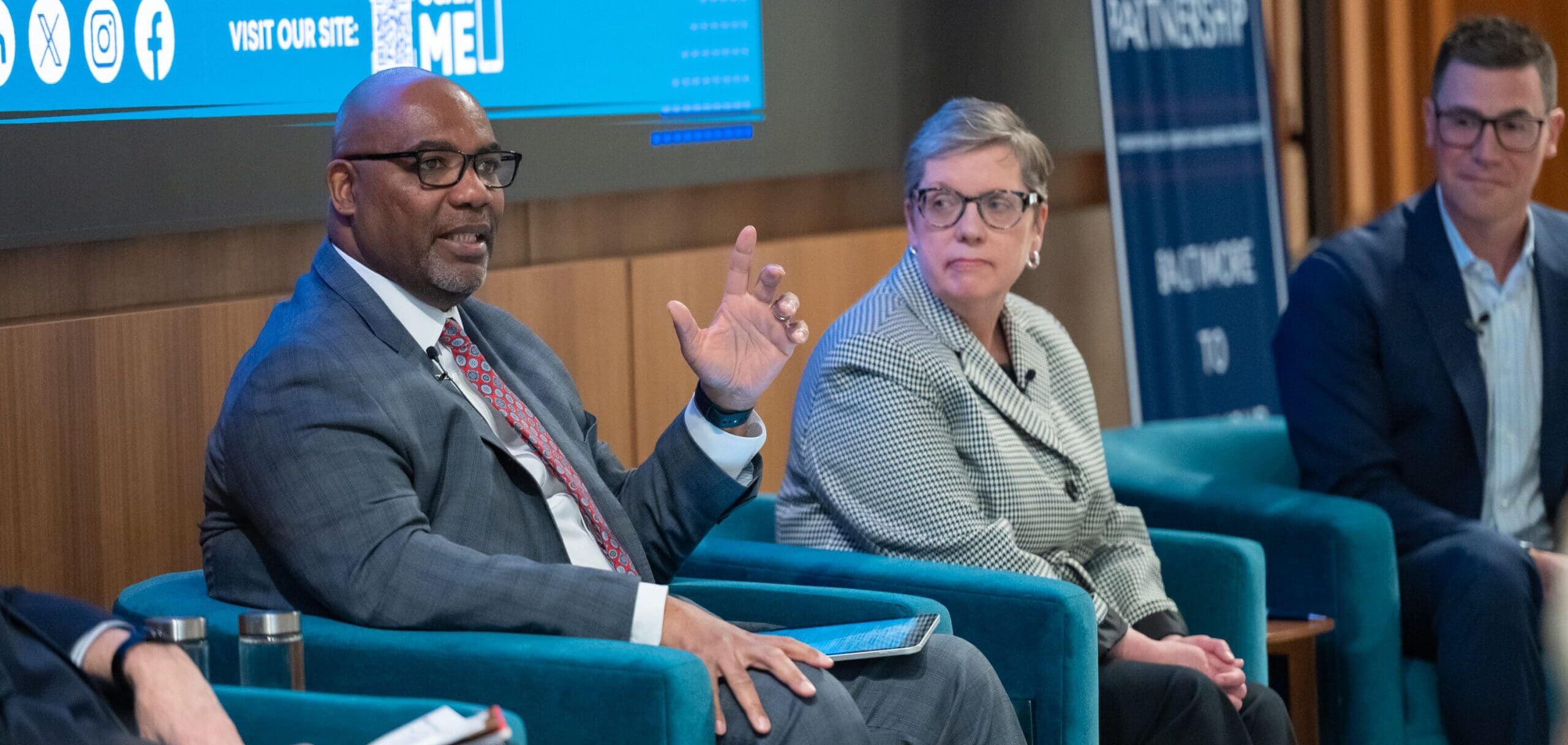 |
Similarly, Dr. Kress outlined efforts to identify and re-engage thousands of “stop-outs” who were not enrolled but were within 18 credits of earning an associate degree. She tied the success of this outreach to NOVA’s success in reversing a seven-year enrollment decline during the pandemic: “We showed our students – and we kept telling them – you matter.”
“It’s about bringing our classes to the community, not the community to our classes.” – Dr. Mark Ginsberg, Towson University
Postsecondary leaders are working across institutions to create innovative new course offerings and pathways into the workforce
Colleges and universities are working on and exploring ways to make it easier for students to gain credentials and get jobs after graduation. Dr. Ginsberg discussed Towson’s interest in collaborating with other institutions in the region to develop course-sharing agreements, particularly for programs that are high-need, high-cost and low-enrollment.
Dr. Kress highlighted NOVA’s ADVANCE program, a joint admissions partnership with George Mason University (GMU) that’s been recognized as one of the top transfer programs in the nation. ADVANCE participants receive personalized support from both institutions throughout their experience and all credits earned at NOVA are guaranteed to transfer seamlessly to GMU, saving students time and money. Over 90% of ADVANCE participants who transfer to GMU graduate with a bachelor degree in less than two years, and the two most popular transfer pathways through ADVANCE are information technology and business.
Dr. Edington also discussed UDC’s associate degree offerings and the institution’s role in providing critical entry and re-entry points for learners at a variety of experience levels, including high school students.
“We’re already seeing more students matriculate to UDC and our computer science program and they’re ahead of the curve...it’s the P20 ecosystem vision.” – Dr. Maurice Edington, UDC
The presidents also discussed their work to assess prior learning, especially for working students, veterans, and other nontraditional learners, with Dr. Kress noting, “there’s gotta be a way to credential their experience!”
The Partnership is committed to continuing to partner with these and other higher education institutions in the region, recognizing the critical role they play in developing the future workforce. For more insights from our panel, check out the video below:
To learn more about Greater Washington Partnership’s Skills & Talent initiatives, contact Emily West at ewest@greaterwashingtonpartnership.com. Click here to subscribe to the Partnership’s monthly Skills & Talent stakeholder email.